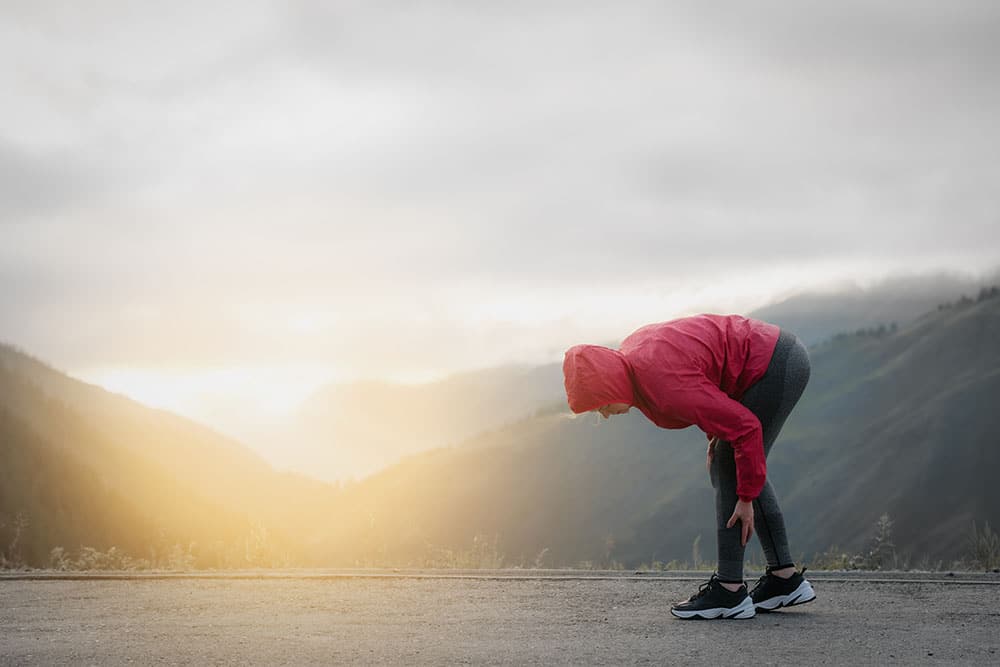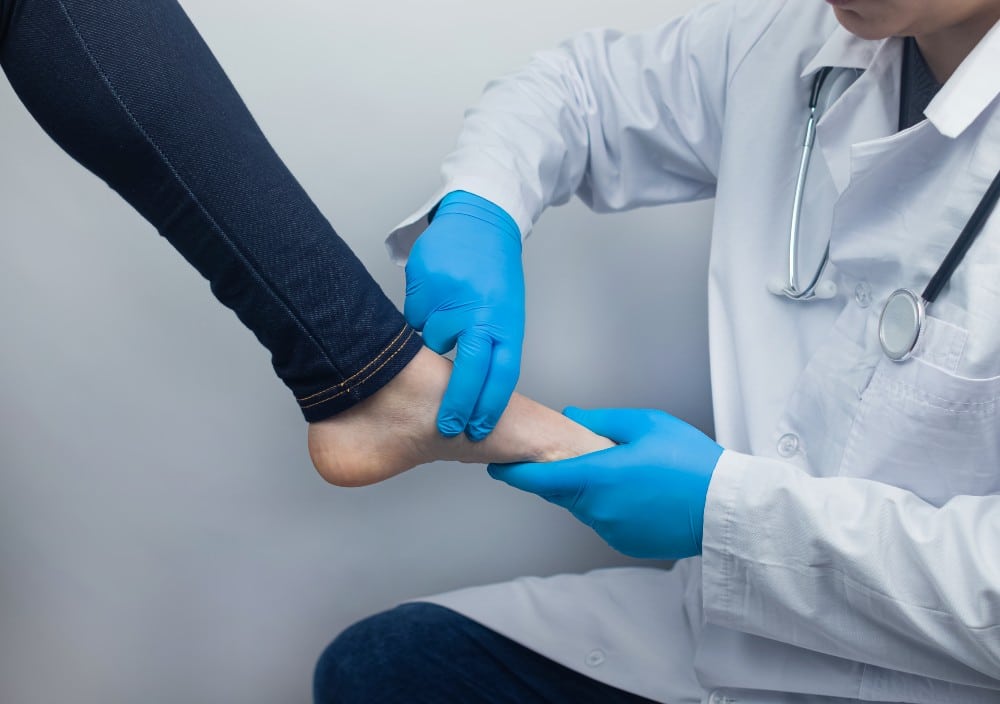Sports Injuries
We demand a lot from our feet and ankles when we’re active. Not only are they absorbing impacts as we run, but our muscles, joints, and other soft tissues are receiving all sorts of demands as we turn, pivot, and jump.
Sometimes, all these forces become too much. That’s when a sports injury can occur.
Regardless of how they happen, sports injuries can grind your game and goals to a temporary halt. The key to recovery is providing an injury the time and care it needs and easing back into activity in ways that won’t cause further and more debilitating damage.
Types of Sports Injuries
In general, sports injuries to the feet and ankles come in two types:
Acute Injuries:
Which are often caused by sudden impacts or high forces. These can include ankle sprains, broken toes, and other fractures.
Overuse Injuries:
Which are often caused by exerting yourself too much, too quickly. Athletes who increase the intensities of their workouts too much without proper preparation may suffer overuse injuries, as can those who engage in repetitive activities for too long without providing the body enough time to recover and grow stronger.
Acute injuries tend to be the ones most people imagine when they think of sports injuries, but overuse injuries are quite frequent as well. Common types of overuse injuries include:
Plantar fasciitis – The strong band of tissue that runs beneath each foot becomes inflamed, leading to pain—especially when moving after extended periods of inactivity. Runners tend to suffer from plantar fasciitis most often due to repetitively striking the ground with their feet.
Stress fractures – As opposed to a “traditional” fracture that can fully break a bone, stress fractures appear as small cracks along the surface of a bone. Repetitive stress can once again be responsible for this condition. Stress fractures are often seen toward the front of the foot.
Achilles tendinitis – Inflammation of the largest tendon of the body, which connects the heel bone to the calf muscle. Pain and stiffness are felt toward the back of the heel or back of the leg in the morning, and additional pain can occur after activity.
Neuroma – This is a swelling of tissue around a nerve, often in the ball of the foot. Symptoms can include pain, tingling, numbness, and the general feeling as if a stone or other object is caught in your shoe, when there is none.
Treatment for Sports Injuries
The best action for sports injuries begins with you. If you are feeling pain, whether it’s sharp and severe after a tackle or an ache that’s been developing after your runs, you need to stop for now. The more you continue with your routines as they stand now, the higher your odds of causing more damage and chronic pain.
We will conduct a full exam to not only fully identify the cause of your pain, but also the factors that are contributing to it.
If that includes overuse, we will help you determine a better way to work up toward your goals, and include stretches and warm-ups that can address conditioning in your feet and ankles.
If an abnormal foot shape or imbalance of forces across the feet is contributing to the problem, we may recommend a change in footwear or the use of custom orthotics.
For any soft tissue injuries, we might also recommend our Multiwave Locked System (MLS) laser therapy. This state-of-the-art treatment has effectively reduced pain and accelerated healing in many cases.
We will conduct a full exam to not only fully identify the cause of your pain, but also the factors that are contributing to it.
If that includes overuse, we will help you determine a better way to work up toward your goals, and include stretches and warm-ups that can address conditioning in your feet and ankles.
Find Relief at
Capital Podiatry
The worst thing you can do for a sports injury is waiting. The sooner you get the right kind of treatment, the sooner you can get back to doing what you love!
Call Capital Podiatry Associates at (703) 560-3773 or fill out our online contact form to reach out to us today.

